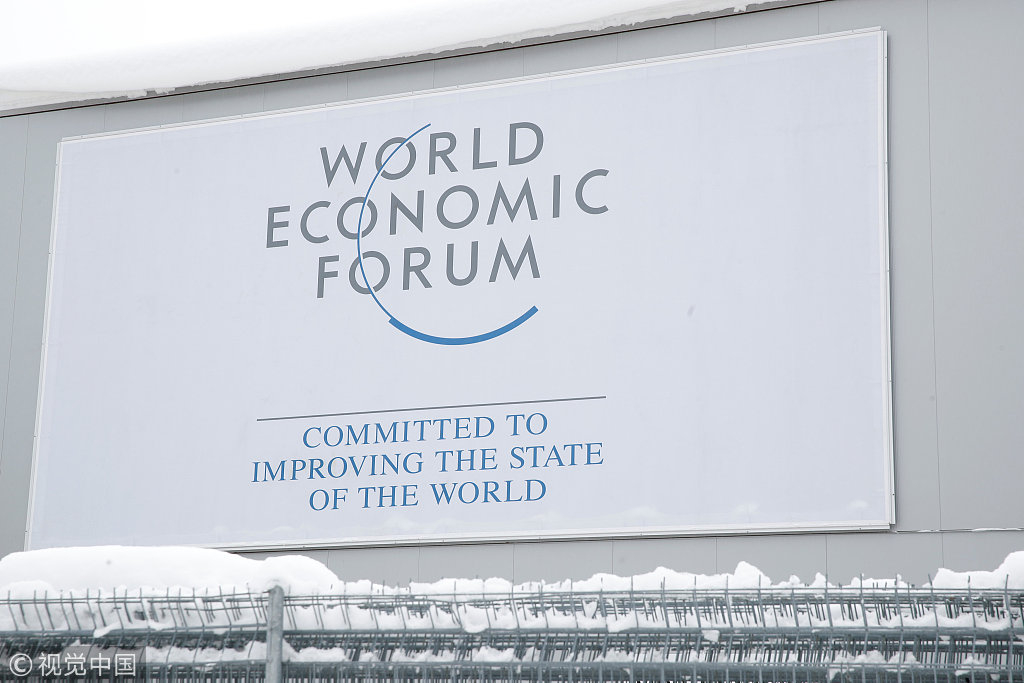Aikman: WEF seeks better engagement, vision from world leaders
Editor’s note: The article is based on an interview with David Aikman, China Chief Representative Officer and member of the Executive Committee of the World Economic Forum.
The 2019 World Economic Forum (WEF) begins on January 22 in Davos. It's a yearly gathering of the world's political and economic leaders to shape global, regional and industry agendas.
This year, the Forum will focus on "Globalization 4.0.," which means shaping a global architecture in the age of the Fourth Industrial Revolution. Against the backdrop of unprecedented uncertainty and disruption, we are at a moment of transformative change.
While the first phase of globalization occurred around nations, the second around strengthened cooperation between countries, and the third focused on how individuals and social media plays an important role, the fourth phase of globalization is an opportunity to embrace both opportunities and risks, said David Aikman, China Chief Representative Officer of the World Economic Forum, in an exclusive interview with CGTN.
"Globalization 4.0 has only just begun, but we are already vastly underprepared for it," said Klaus Schwab, founder and Executive Chairman of the WEF in his article entitled "Globalization 4.0 – what it means and how it could benefit us all." And his views are echoed by Aikman. He reckons that the WEF is a chance for world leaders to find solutions for the current issues the world faces.
Globalization hasn't delivered all of the returns its promised and it is necessary for leaders to pull together, and look for wider engagement and a heightened version and imagination, said Aikman.
With the rising wave of populism and anti-globalization in many developed countries, discussions on how to reform the outdated systems and promote and protect multilateralism are of vital importance.

Logo of the World Economic Forum (WEF) is seen in Davos, Switzerland, January 12, 2019. /VCG Photo
Responsive, bold leadership from national governments will be needed to manage Globalization 4.0, according to Schwab. And Aikman described the best qualities in a leader is to have both a "radar" and a "compass."
"Professor Schwab has a wonderful analogy of the 'radar' and the 'compass' which I find guides very well. You need vision, principles morals and mission to guide you, that is your compass. But just following your compass, you may crash into a mountainside if you don't have your radar working. The changing context of the world and changing nature of the technology requires us to be more open, and send out signals triangulate what is happening in the world. The best leaders can combine both," said Aikman.
Founder and Executive Chairman of the World Economic Forum Klaus Schwab gives a press conference ahead of the 2019 edition of annual meeting of the World Economic Forum in Geneva, January 15, 2019. /VCG Photo
Meanwhile, another focus of this forum is how the China-U.S. trade debate will be played out.
The tragedy of the current trade discussion is that it's taking attention away from China and the U.S. engaging in solving bigger issues, like climate change and technological changes. It's quite a complex negotiation.
"I think until now (negotiations) are probably better handled in private and in quiet, because it's quite contentious and difficult issues to work through, we do recognize it's a long term endeavor and everything won't be necessarily solved in that 90-day negotiation window," said Aikman.
(If you want to contribute and have specific expertise, please contact us at opinions@cgtn.com.)